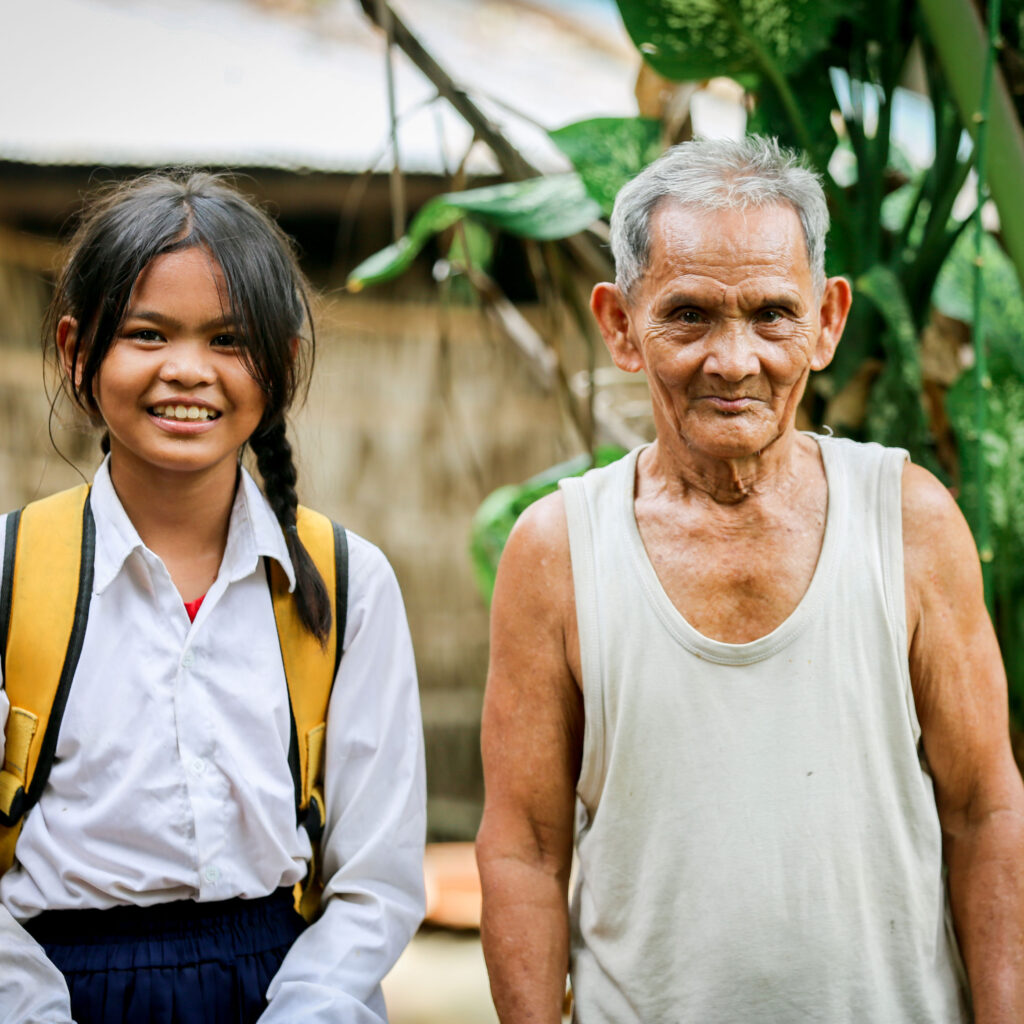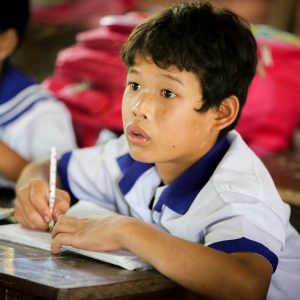Girls need the opportunity to go to school and learn, yet about 130 million girls today are still denied an education.
Twelve-year-old Chenda* (pictured above and below) from Cambodia was in Grade 2 when she learned that her family couldn’t afford to keep her in school.
Her parents went to neighbouring Thailand in search of work, and Chenda went to live with her grandfather.
Instead of going to school, Chenda started to do chores at home instead to pass the time. “I wanted to go to school like other children,” Chenda said. “After doing housework, I had nothing to do. I was unhappy.”
There are millions of girls around the world who face barriers keeping them from school, such as poverty, a lack of hygiene facilities, and sometimes harmful views about gender.
Chenda wanted to stay in school, but her parents couldn’t afford books, uniforms, or transport to get her there and back.
“I wanted to go to school like other children.”
Chenda, 12, Cambodia.
While Chenda’s mum went looking for a job to bring more income to the family, Chenda helped her grandfather at home, missing her opportunity to learn and play at school.
“I helped my grandfather with the housework, cooking and chopping firewood,” Chenda said.
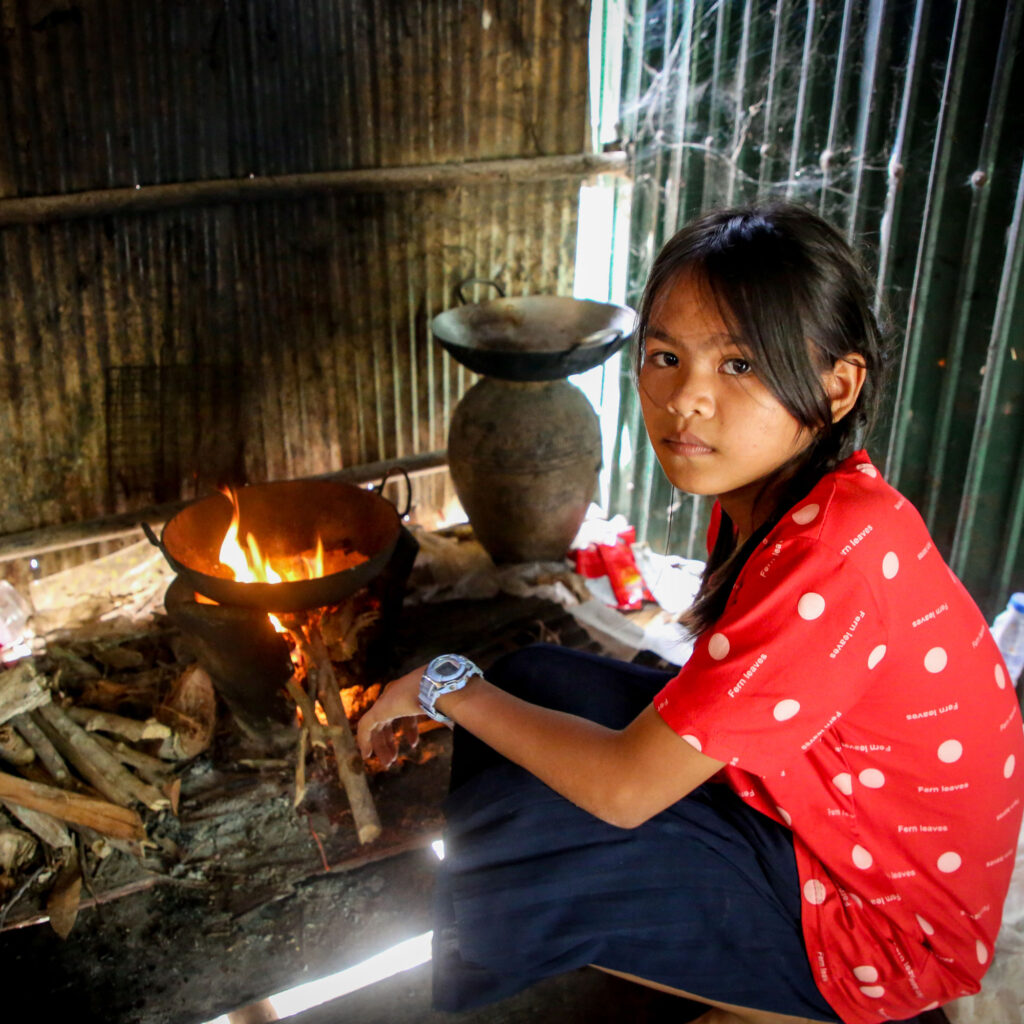
Chenda’s grandfather loves his granddaughter and wants the best for her. He liked Chenda assisting him at home with chores but he knew this wasn’t as important as her returning to school.
Girls who are not in school are more likely to remain in poverty. They are also at a greater risk of sexual exploitation, forced or early marriage, and gender-based violence. The impacts of the pandemic, climate change and economic instability on developing communities has increased the number of girls leaving school early, or not attending at all.
How you can help
ChildFund’s partner on the ground in Cambodia supported Chenda with learning materials and helped her return to school.
“I now have a school bag, pen, writing book, pencil, shoes, and school uniform,” Chenda said. “I was very happy the day my grandfather told me the teacher had asked him to send me back.”
A donation to our girls’ education appeal can help get girls like Chenda get back to school, give local teachers training and support, and help improve classrooms and build school playgrounds and toilets.
Chenda returned to a better school. “The school had changed,” she said. “There was a playground, a library with many books, a football court, and a bicycle parking space.”
With your help today, more girls like Chenda will get the chance to be excited about their school days – and their futures.
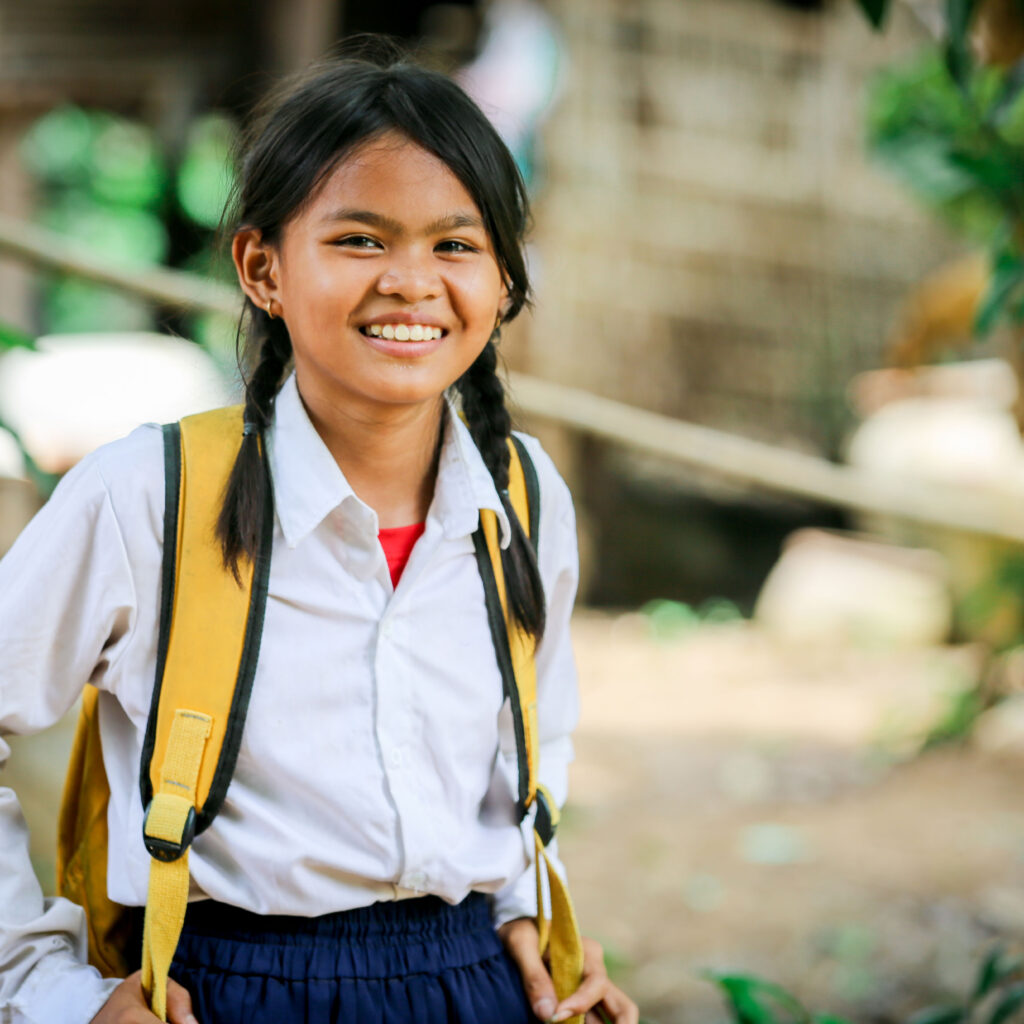
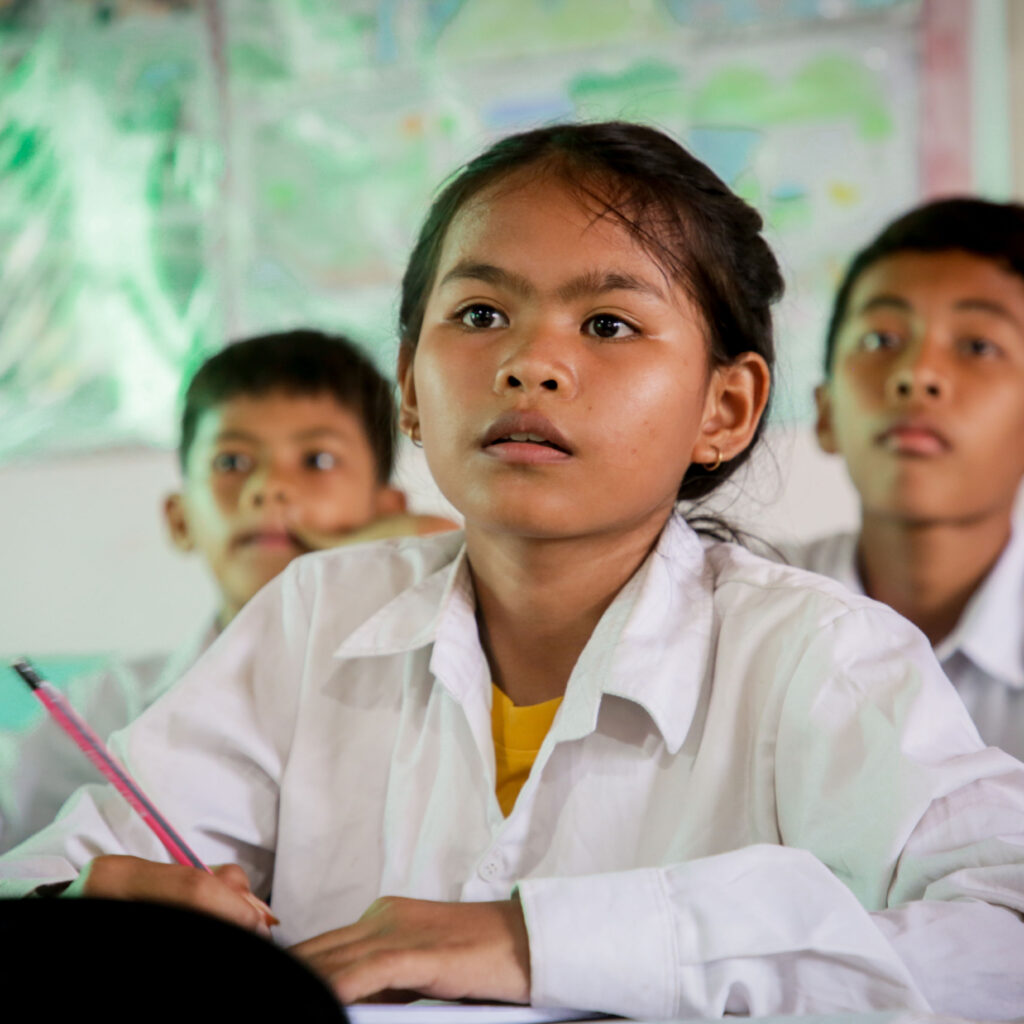
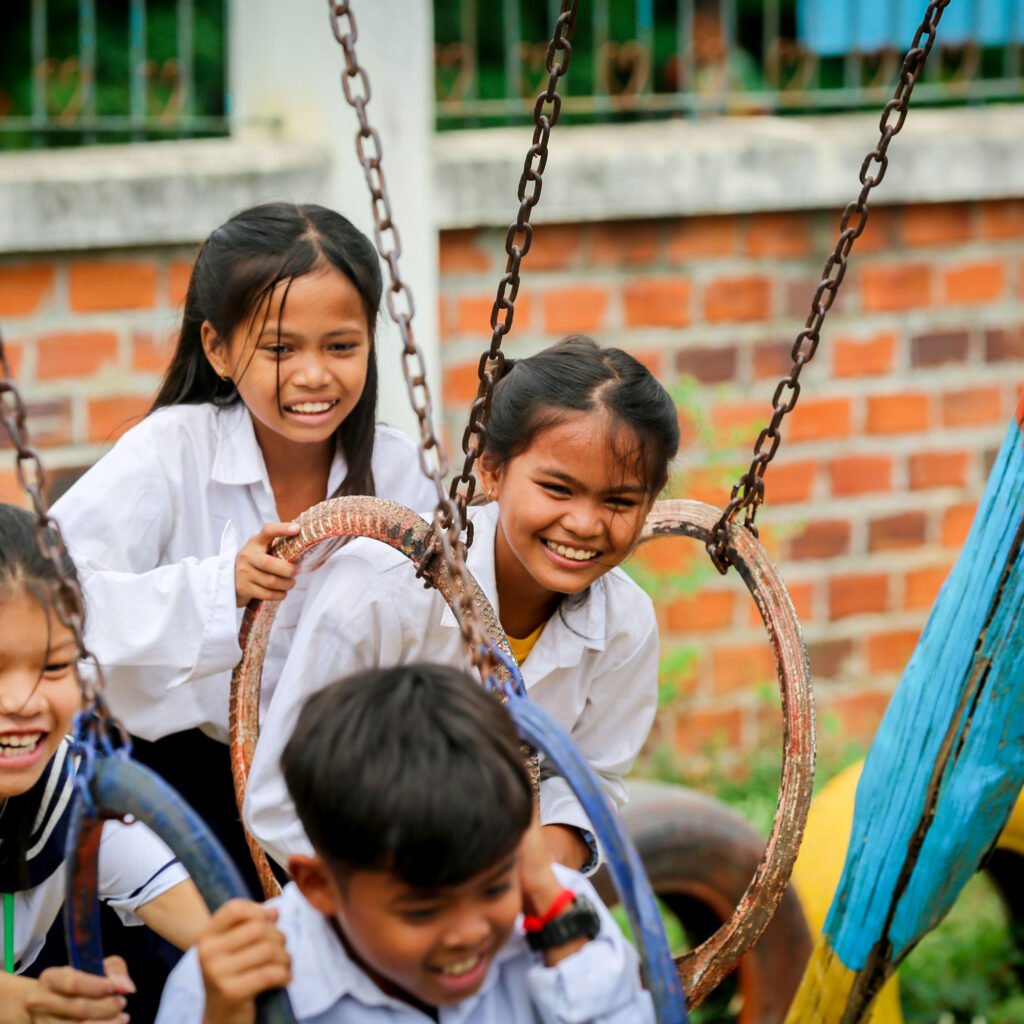
Chenda’s grandfather (pictured below) is proud of Chenda. He has lived in poverty for all his life, and wants things to be different for the next generation. “I worked hard to raise my children on my own, lugging soil and fetching fish,” he said. “I only made enough money just to survive each day. Chenda works extremely hard at school. I don’t want her to be illiterate like I was. I want her to keep learning.”
Chenda shares her aspirations: “When I grow up, I want to be a brave and strong person. I don’t want to ever look down on anyone because everyone is different.”
